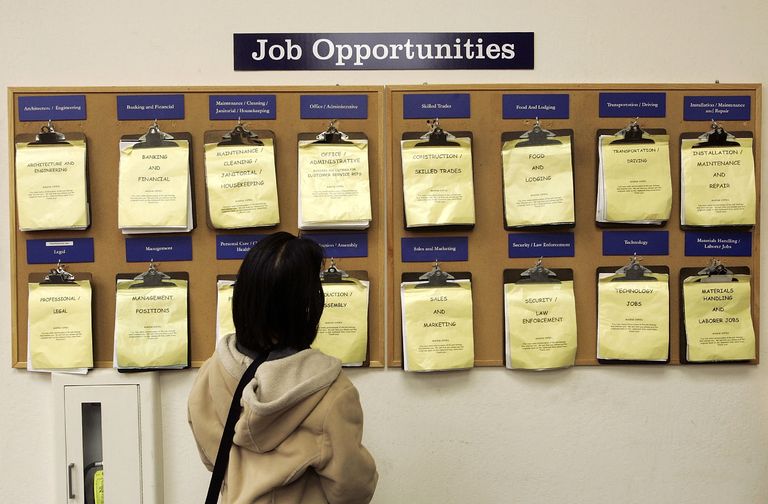European markets have finished a choppy week on the up, shrugging off the disappointment that central banks appear to have pushed back the prospect of early rate cuts until later in the year, although today’s bumper US payrolls report has caused a retreat from the intraday highs.
Europe
The DAX managed to eke out a new record high above the 17k level before slipping back after US non-farm payrolls blew away forecasts with a blockbusting 353k jobs in January, while December was revised up to 333k, and various revisions saw an average 26k jobs per month added in H2 of last year, sending yields surging and pulling markets off their intraday highs.
Today’s laggards on the FTSE100 have been the oil majors with Shell and BP slipping back on the account of lower oil prices reversing the gains of yesterday on the back of Shell’s decent earnings numbers with BP due next week.
On the upside Tesco and Sainsbury are outperforming after Morgan Stanley upgraded both on account that they are likely to benefit from volume growth in 2024, while Primark owner ABF was downgraded to equal weight.
Also benefitting from broker upgrades is EasyJet, raised to overweight at Barclays with a 700p price target, and Wizz Air, raised to equal weight by the same bank with a 2200p price target.
Amongst some of the other big movers today has been Superdry, which has surged in anticipation that the struggling retailer could find itself on the receiving end of a bid after it was reported that First Seagull, an investment fund bought a 5.3% stake in the business. The shares have fallen off a cliff in recent months, with the problems well documented when it comes to weak revenues and sales. It is also being reported that CEO Jamie Dunkerton may also be interested in putting together to make an offer himself with the help of various third-party partners as the retailer looks at measures to restructure itself.
US
Having slid sharply in the aftermath of Wednesday’s Powell press conference, US markets were expected to open higher today after last night’s better-than-expected numbers from Meta and Amazon added further impetus to yesterday’s rebound from Wednesday’s sharp decline.
That was before today’s blow-out January jobs report which could not have been more different to the poor ADP report on Wednesday.
353k new jobs were added in January, while December was revised up to 333k, from 216k, blowing away every single forecast. Wages also came in higher than expected at 4.5%, and December was revised up to 4.3%.
Anyone hoping that the annual revisions to previous months jobs numbers might undermine the narrative of a resilient jobs market were also disappointed with today’s revisions adding an average extra 27k jobs a month in the second half of last year.
If March wasn’t off the table as far as rate cuts were concerned before today’s payroll numbers, it’s not even in the same room now.
That said this wasn’t bad news for US markets given that the prospect of a recession looks even further away than ever, but also means that on an economic basis a resilient US economy should mean company earnings hold up.
It also helps to explain why even though the S&P500 gave up most of its premarket gains, it still managed to open higher, along with the Nasdaq 100.
Facebook owner Meta Platforms has seen its shares open at new record highs, rising 20%, after reporting $40.11bn in revenue and generating profits of $5.33 a share. For the first time ever, Meta said it would be paying a dividend of 50c a share, as well as announcing a $50bn share buyback. Advertising revenue came in at $38.71bn with daily and monthly active users both beating forecasts.
For Q1 guidance Meta says it expects to see revenues of between $34.5-37bn.
One other item that got investor attention was AI spending, with Meta increasing its capex by $2bn in this area.
Amazon also had a record quarter beating its forecasts for Q4 comfortably turning over a record $170bn, driven by a record Black Friday and Cyber Monday shopping event, and returning profits of $1 a share, or $10.6bn, well above forecasts of 80c. Despite the extra hiring the growth in revenue far outweighed the increase in expenses showing that the despite the difficulties of the last 2-years Amazon has become much more efficient. Online stores saw revenues of $70.54bn, although AWS came in marginally short at $24.2bn while geographically the company outperformed in both North America and internationally. Over the full year Amazon saw a 12% increase in net sales to $574.8bn. For Q1 guidance was in line with expectations with the company forecasting $138-143.5bn, while the company said it expected to deliver operating income of between $8bn and $12bn.
Apple shares on the other hand have slid back despite also beating on revenues in Q1 with $119.58bn, led by the iPhone of $69.7bn which came in ahead of forecasts. It was notable however that on a regional basis Greater China revenue came in well short of forecasts at $20.82bn indicating that the squeeze on sales is starting to have an effect. There was also concern on the part of Apple management that this was likely to continue, with the March quarter expected to be similar to last year which is a little disappointing.
Exxon Mobil shares have edged higher after seeing Q4 revenues fall short of forecasts at $84.3bn, although profits beat quite comfortably at $2.48, pushing annual profits to $36bn. This includes a $2.5bn impairment charge for California properties it is looking to offload as oil companies look to detach themselves from a state that prefers to invest in renewables and a green transition.
Exxon said it is on course to make $15bn in cost savings by 2027, while launching a new lithium business with the potential to have capacity to recharge 1m EVs per year by 2030.
Problems in the US regional banking sector don’t appear to be prompting too much concern for the moment, however that could change if the problems at New York Community Bancorp start to spread and does appear to be sparking some weakness in the Russell 2000.
FX
The US dollar surged along with yields after a surprise surge in hiring during January which saw the US economy add 353k jobs while adding an average of 27k jobs per month over the second half of 2023. A sharp jump in wages also caught markets offside, torpedoing any prospect that the Federal Reserve would cut rates at its March meeting.
Even though Chairman Powell ruled a March rate cut out on Wednesday you can be sure that if we’d seen a poor set of numbers today the markets would have jumped back on the March bandwagon. Today’s jobs report has not only made the prospect of a March cut much less likely, it’s now not even in the same room, but it has also prompted traders to price out at least another 2 rate cuts this year and move the consensus into line with the Fed’s projections of 3 rate cuts for 2024.
Commodities
Brent crude prices have drifted back from their recent 2-month highs this week and look on course to reverse the gains of last week, as demand concerns once again come back to front of mind, while talk of a possible ceasefire between Hamas and Israel is also weighing on prices.
Gold prices have taken a dive on the back of those bumper US jobs report numbers as a sharp rebound in yields and a surge in the US dollar saw bets on an imminent cut in rates get pared back aggressively.
Volatility
Both crude and refined oil prices tumbled late on Thursday amidst unsubstantiated reports of a ceasefire being agreed between Israel and Hamas. Whilst that didn’t prove to be accurate, proposals have evidently been tabled this week, with the news resulting in a three dollar slide for West Texas Intermediate. One day vol on the asset advanced to 55.08% against 34.17% for the month, whilst refined products saw slightly higher levels of activity, with low sulphur gasoil printing 58.73% on the day and 34.72% on the month.
Local US banks have been finding themselves under pressure this week, with the consequent effects being seen across the wider financial sector. CMC’s proprietary basket of 19 US bank stocks had a difficult morning, before finding some support in the latter part of the day. However, sentiment remains clearly subdued here and some banks are evidently struggling in the face of a lacklustre property market. One day vol on the US Banks basket stood at 59.88% against 32.65% on the month.
A trading update from BT Group saw its stock find elevated levels of price action. Early gains off the back of better-than-expected quarterly revenues proved unsustainable with the stock sinking throughout the session. One day vol printed 80.71% against 38.96% for the month.
Disclaimer: CMC Markets is an execution-only service provider. The material (whether or not it states any opinions) is for general information purposes only, and does not take into account your personal circumstances or objectives. Nothing in this material is (or should be considered to be) financial, investment or other advice on which reliance should be placed. No opinion given in the material constitutes a recommendation by CMC Markets or the author that any particular investment, security, transaction or investment strategy is suitable for any specific person. The material has not been prepared in accordance with legal requirements designed to promote the independence of investment research. Although we are not specifically prevented from dealing before providing this material, we do not seek to take advantage of the material prior to its dissemination.





